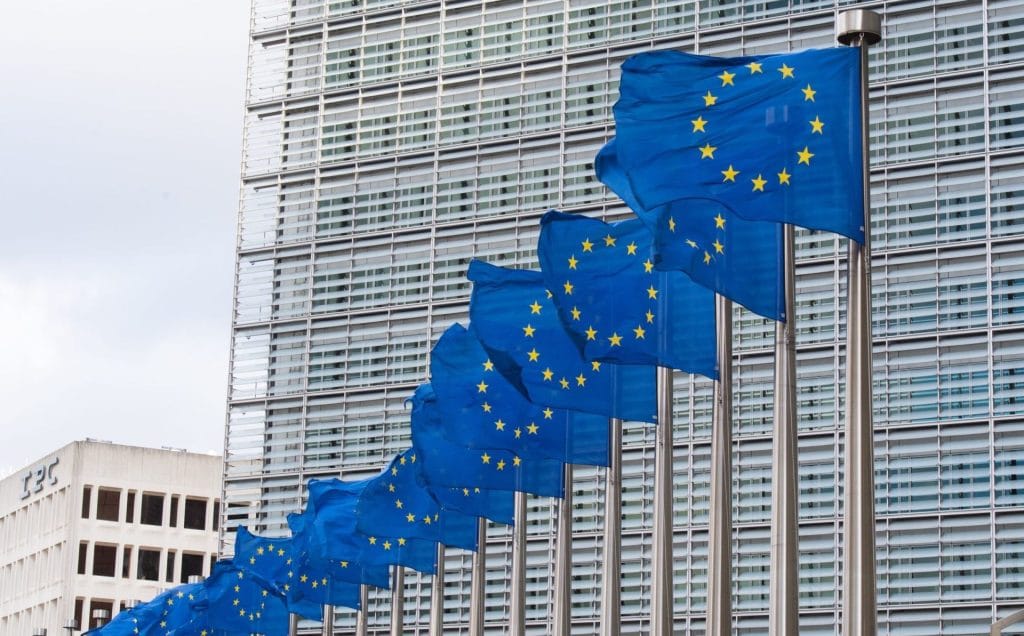EU Launches $108B Investment Plan to Accelerate Clean Fuels for Aviation

• Europe targets 20 million tonnes of sustainable fuels by 2035, requiring €100 billion in investments.
• The plan integrates the EU’s Clean Industrial Deal and Competitiveness Compass to scale renewable and low-carbon fuels.
• New financing measures include €2.9 billion in EU funding through 2027 and dedicated support for hydrogen and e-fuel projects.
Brussels Drives Forward a Clean Transport Transition
The European Commission has launched the Sustainable Transport Investment Plan (STIP), a comprehensive roadmap aimed at scaling renewable and low-carbon fuels in aviation and waterborne transport. The plan, unveiled under the EU’s Clean Industrial Deal and Competitiveness Compass, seeks to close the investment gap in sustainable fuel production and align the transport sector with Europe’s 2050 climate neutrality goal.
With an estimated €100 billion needed by 2035, the initiative seeks to attract both public and private capital to develop 20 million tonnes of sustainable fuels—13.2 million tonnes of biofuels and 6.8 million tonnes of e-fuels—to meet the targets of the ReFuelEU Aviation and FuelEU Maritime regulations.
A Unified Investment Strategy
The Commission’s plan delivers, for the first time, a single framework for mobilising investments across two of the hardest-to-decarbonise sectors. The Sustainable Transport Investment Plan aims to remove bottlenecks, stabilise policy signals, and support market growth through a combination of regulatory assurance and financial instruments.
The EU will deploy at least €2.9 billion through 2027 to spur private co-investment, combining support from the Innovation Fund, Horizon Europe, InvestEU, and the European Hydrogen Bank. InvestEU alone will mobilise at least €2 billion in financing for sustainable fuels projects by 2027.
The Commission also plans to allocate €300 million through the Hydrogen Bank this year to accelerate hydrogen-based aviation and maritime fuels, while Horizon Europe will channel €133 million into research and innovation projects. Further funding includes €153 million for synthetic aviation fuel projects and €293 million for maritime fuel initiatives under the Innovation Fund.
Driving Market Confidence and Early Adoption
At the heart of the STIP is the aim to stabilise investor confidence. By providing regulatory clarity and long-term visibility, the Commission seeks to anchor private-sector financing and derisk early investments.
An early-adopter initiative, the eSAF Early Movers Coalition, will launch by the end of the year with support from Member States. The coalition is expected to mobilise at least €500 million for synthetic aviation fuel projects, creating demand certainty for emerging producers.
Looking ahead, the Commission intends to establish an intermediary mechanism connecting fuel producers with buyers to guarantee revenue stability and facilitate long-term offtake agreements. Such a mechanism would mirror successful models used in renewable energy procurement, such as Contracts for Difference, and help bridge the price gap between conventional and sustainable fuels.
RELATED ARTICLE: EU Commits $4.3 Million to Support Sustainable Aviation Fuels
Linking Industrial Policy and Climate Ambition
The Sustainable Transport Investment Plan forms part of a broader industrial and competitiveness strategy designed to reinforce Europe’s energy independence and maintain its global leadership in clean technologies. Europe already holds a majority share of global intellectual property in renewable and low-carbon fuel production, and the Commission views domestic scaling as central to safeguarding both jobs and industrial know-how.
Beyond the economic dimension, the STIP also seeks to ease regulatory burdens for airlines and shipping operators, enabling them to redirect resources toward innovation and operational efficiency. The plan’s international component will deepen cooperation with global partners on sustainable fuel development while ensuring a level playing field for EU producers.
Policy Context and Strategic Implications
The STIP builds on two major EU legislative frameworks adopted earlier this year: ReFuelEU Aviation, which mandates minimum shares of sustainable aviation fuels at EU airports, and FuelEU Maritime, which sets greenhouse-gas intensity limits for maritime fuel suppliers.
Together, these measures will drive market demand for cleaner fuels across supply chains—from feedstock development to distribution infrastructure—helping Europe move closer to its 2030 emissions-reduction targets.
For corporate leaders, financiers, and policymakers, the STIP marks a signal of policy alignment: Europe’s clean transport transition will be financed through coordinated capital mobilisation and market-making mechanisms, not ad hoc subsidies. The message is clear—stable regulation, targeted incentives, and industrial coordination will define Europe’s pathway to low-carbon mobility.
A Strategic Step Toward Competitive Decarbonization
Commissioner for Sustainable Transport and Tourism Apostolos Tzitzikostas framed the initiative as both an environmental and economic imperative. “Our Sustainable Transport Investment Plan is a decisive step towards a sustainable future. It’s not just about cutting emissions – it’s about building a stronger, more competitive and resilient Europe that leads in sustainable transport,” he said.
As Europe enters a decisive decade for decarbonization, the STIP’s success will hinge on collaboration among Member States, industry, and financiers. The stakes extend far beyond aviation and shipping. By anchoring investment confidence in the clean transport transition, the EU is laying the groundwork for a broader green industrial renewal—one that could define its global competitiveness in the decades ahead.
Follow ESG News on LinkedIn












